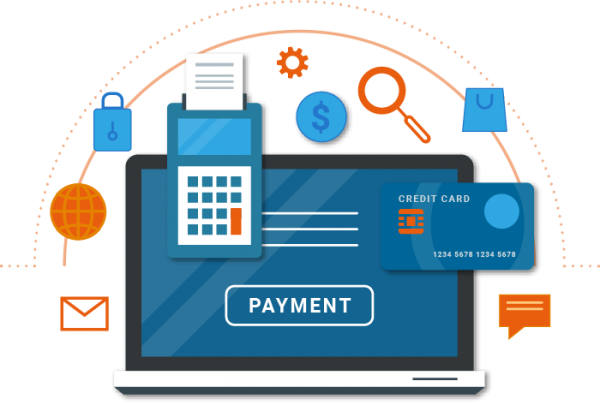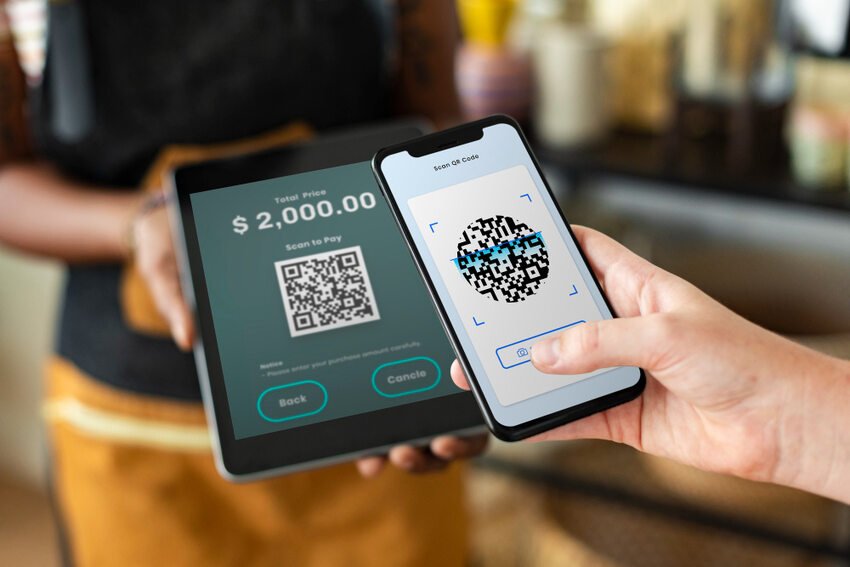Businesses need merchant accounts to accept clients’ payments. From this article, you’ll get to know which type of account you should choose and how to secure the most lucrative conditions for it.
If you run a business and you want to accept credit or debit card payments either online or offline, you need a merchant account. From this article, you’ll get to know how to choose the right type of merchant account and which terms to negotiate. Also, you’ll learn about the fees that you’ll need to pay and the factors that might influence the conditions of using the account.
If you are looking for reliable and top-tier credit card processor reviews in the US, take a moment to explore this comprehensive guide. It features leading industry providers known for their secure and dependable services.
What Is a Merchant Account?
When a customer makes a purchase, your merchant account will automatically process their card transaction and charge you a small processing fee. Then, it will deposit the remaining earnings from the sale into your bank account.
The funds won’t go directly into your bank account. First, the customers’ bank will need to authorize the transaction. Second, your merchant account will process it. Such an approach enables the bank to check whether the consumer has enough funds for the purchase. Also, it minimizes fraud opportunities.
Finally, the money will land in your bank account. If you use a conventional bank, you might need to wait up to three working days. But some credit card processing companies might transfer funds to you instantly.
Which Fees Should You Be Ready to Pay?
Depending on the type of your business and the conditions of your contract, you might need to pay the following types of fees:
- One-time
- Monthly
- Transaction
- Application
- Cross-border
- Discount
Plus, an online business should buy an online payment gateway to be able to accept payments. Offline shops need physical card readers.
Merchant Account Types
There are four types of merchant accounts:
- Aggregate
- ISO
- High-risk
- Internet
Below, we’ll give brief characteristics to each of these types.
Aggregate Accounts
For small businesses, such accounts are optimal since they feature no set-up or monthly fees. You pay a fee only when you make a sale. You can get such an account from payment facilitators or payment service providers. payment facilitators or payment service providers. They pool the funds of multiple merchants together, making them sub-merchants to a company that acts as the main merchant. Your company will get a code based on your sphere of activity and you’ll be matched with other similar businesses. Thanks to using a shared account, small companies can benefit from lower merchant fees that are typically only available to larger organizations.
Besides, aggregate accounts often get instant approvals — while with other types, the setup might take a few days. Also, they often provide basic software and hardware for free and almost never feature early termination fees.
However, payment service providers have a few shortcomings too — here are just a few examples.
- They might not be eager to negotiate the conditions of the contract.
- They might offer limited phone customer support (or none at all).
- They might be poorly compatible with third parties’ hardware or software.
- Account terminations and funding holds might be common and hard to predict.
Normally, it makes sense to use an aggregate account only as long as your business is taking off. When it begins to scale, you should consider switching to the ISO type.
ISO Accounts
This acronym stands for independent sales organizations. They aren’t officially part of the cardmember associations like VISA or MasterCard. Yet they have developed partnerships with acquiring banks to provide merchant accounts to members. An ISO merchant account involves no matching with other businesses. Being the only merchant, you can negotiate more flexible conditions and get the perks that you want. ISO merchant accounts are good for businesses with supercharged sales volumes because they usually involve set-up and monthly fees.
High-Risk Accounts
Some entrepreneurs associate this term with gambling or cryptocurrency trading. Yet in fact, this category includes such spheres as dating, travel, online healthcare, subscription services, and many others. However, high risks might relate not only to the industry but also to the business. If you have a bad credit score, you should apply for this type of merchant account — and you might easily get approval. High-risk accounts involve higher fees — but as your sales grow, you might try to negotiate lower ones.
Internet Accounts
If you run an online business, you need an Internet merchant account. Be ready to pay both setting-up and transaction fees. Companies that already have other types of accounts for their offline operations (for instance, aggregate ones) will need to get Internet ones for their online operations nevertheless.
What Is PCI DSS?
No matter which account type you choose, you’ll need to abide by the Payment Card Industry Data Security Standard. It’s a must for anyone who is storing, processing, or transferring cardholder data. The PCI DSS is a set of security standards designed to ensure that everyone involved in card transactions is thoroughly protecting sensitive data. Your account provider should give you tools to help you maintain PCI compliance. As your business scales, you’ll be required to meet increasingly higher levels of PCI compliance.
Which Factors Can Influence the Conditions of Your Merchant Account?
Your credit history is the primary factor. The better it is, the more lucrative conditions you’ll get. Your history shows how you have managed to repay loans in the past and whether you have ever defaulted.
The second factor is the age of your business. The larger it is, the more experience you have and the better you can calculate any potential risks — including the ones involved in accepting credit card transactions.
The third factor is the number of merchant accounts that you had before. If you already used them previously and everything went well, the service provider might trust you more.
Conclusion
Hopefully, this information came in handy, and now you better understand what a merchant account is. If you open it with the help of a modern service provider and not a conventional bank, this might enable you to transfer funds to your account much quicker. Plus, you might be able to get some other perks. Before choosing a provider, you should compare attentively what different companies offer because the competition in this sector is rather fierce.
Read Dive is a leading technology blog focusing on different domains like Blockchain, AI, Chatbot, Fintech, Health Tech, Software Development and Testing. For guest blogging, please feel free to contact at readdive@gmail.com.





